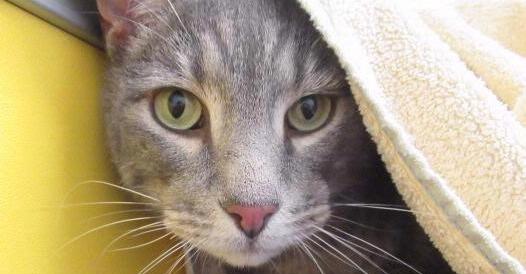
Feline Leukemia Virus and Feline Immunodeficiency Virus are illnesses that have been around a long time but some of the thinking around them has changed. Feline Leukemia used to be thought of as a death sentence for cats but further studies have shown that there can be regressive and latent infections that do not cause disease but lead to a positive test.
Because of this, animal shelters have stopped routinely testing for Feline Leukemia Virus and adopt cats with their viral identity unknown. At Hawthorne Hills Veterinary Hospital we recommend testing for all cats and kittens who are adopted without a previous test. We use a SNAP PCR test in house to give us very accurate results in about 10 minutes with just a few drops of blood. This tests for both FeLV and FIV and vaccination for FeLV does not give a false positive test result.
Hawthorne Hills Veterinary Hospital also follows the American Associate of Feline Practitioners Association recommendation to vaccinate all kittens under the age of two for FeLV whether or not they will spend their life indoors or be let outside unattended. This is especially true for households with more than one cat. The first 2 years are the riskiest times for a kitten to contract FeLV as their immune system develops and there is a good possibility that all cats will escape the house at some point in their lives. After 2 or 3 years of age we often discontinue the FeLV vaccine if an individual cat’s risk is low and they are not exposed to bites or scratches from stranger cats.
Feline Immunodeficiency Virus is another virus that can have varying effects on an infected cat. This virus is also transmitted through blood, saliva, or through the womb. FIV positive cats can often live very full lives, likely with a normal life expectancy. They are more at risk for diseases due to their immunodeficiencies and should be kept indoors and more closely monitored for development of illness. There was a vaccine for FIV but is currently off the market due to lack of efficacy and difficulty of testing post vaccination.
Benny came to see Dr. Brandi Eskesen at Hawthorne Hills Veterinary Hospital for a routine visit and to establish care. He was adopted from the Seattle Humane Society in January as a healthy 2 year old boy. Benny’s exam was fairly normal and he seemed happy and healthy. We performed a Feline Leukemia Virus and Feline Immunodeficiency Virus test in house because he was not tested before being adopted. The test showed a faint postive for Feline Leukemia Virus. Because of this suprising result we retested in house and then sent blood to the lab to confirm. All the tests confirmed the positive result. Luckily, Benny has continued to be happy and healthy in his forever home. We hope that he will never show symptoms related to the Feline Leukemia Virus but we will help him with any health issues that may arise.
Fluffy Black Cat came to see Dr. Riedinger in August 2022 after being rehomed several times within an extended family. He is about 6 years old but we could not acquire any past veterinary medical history. We started his vaccines and tested him for Feline Leukemia Virus and Feline Immunodeficiency Virus. He tested positive for FIV but was pretty healthy other than having fleas and being overweight. Dr. Riedinger started him on flea control (very important for immunosuppressed animals) and recommended he go on a diet. He is thriving with his new family and proper care and grooming!
For many years, the health care of cats in general took a back seat compared to the care and attention that dogs get. Partly because cats act like they are ‘self-sufficient’ and don’t complain the way the rest of us might. In addition, many cat owners found it challenging to get their cats accustomed to carriers, riding in cars, and accepting some of the daily care their need.
Fortunately this is changing. Now there are modern carriers that make it easier to transport cats, we are learning gentler ways of handling cats and we are more in tune with what cats need. Research is also underway in a number of areas focused on medications and treatments that address some health issues specific to cats. The good news is that with regular veterinary visits and willing owners, most cats can life long healthy lives.
Here are several links with more detailed information:
- VeterinaryPartner.com Feline Leukemia Virus
- VeterinaryPartner.com Feline Immunodeficiency Virus
- American Association of Feline Practitioners – FeLV and FIV Brochure
- Cornell Feline Health Center – FIV information
- Cornell Feline Health Center – FeLV Information





